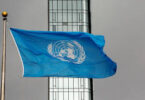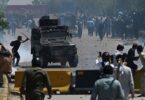Noor Zia
The psychological impacts of migration on Afghan refugees can be significant and multifaceted. Separation from the homeland, forced displacement, and living in uncertain conditions can lead to stress, depression, anxiety, and sometimes post-traumatic stress disorder. Language barriers, cultural differences, and limited access to education and other resources can exacerbate psychological issues.
Living in a foreign country is not an easy job. It affects mental well-being. Language differences can hinder effective communication and lead to frustration and alienation. Not only that, cultural differences can create a sense of marginalization. For instance, an Afghan refugee girl says, “We wear long frocks; sometimes people laugh at our dressing sense. It creates an inferiority complex in us. We usually avoid meeting someone or going to their home.”
Another Afghan refugee girl, Asma, says: “In our village, the way we talk, people used to laugh at us. They used to make fun of the sentence structure or the vocabulary we used. Due to these factors, our language has changed.” When you are mentally triggered to change your dressing style, language, or taste for food, it affects your overall mental well-being.
Moreover, the uncertain status adds another layer of stress to Afghan refugees’ lives. Their inability to plan for the future or live a stable life can lead to anxiety. Those who have experienced injustice, violence, and barbarism in their homeland may suffer from Post-Traumatic Stress disorder. All the mental health issues can be exacerbated by the challenges of refugee life.
Separation from dear and near ones during the migration process can lead to feelings of loss and loneliness. Due to the passport and visa system, Afghan refugees are not able to join their relatives’ wedding ceremonies and funerals. People can compromise on not joining the wedding ceremony but not on funerary duties. Everyone wants to see their loved ones for the last time. It also results in a life-long trauma of wishing to would have seen their beloved people.
It hits mental well-being. Either they are daily wage workers or do jobs in the private sector. Due to illiteracy, only the heads of the family do work, and sometimes unmanageable to feed their families. They can’t even provide the basic necessities of life: food, clothes, and shelter. Also, living in an overcrowded camp leads to a lack of privacy, dignity, and feelings of insecurity. They think of themselves as people of no value.
Hence, good mental health is as necessary as good physical health. If you get injured, it is easily curable, but if you start suffering from mental health issues, then it is difficult to cure. Even after consulting a psychiatrist or psychologist, treatment takes a prolonged period. Mental or emotional conflicts are difficult to understand or handle. Also, finding the cause of what is happening to the patient is difficult. It is a plea to the government of Pakistan and other foreign organizations to provide psychological support programs to the Afghan refugee camps. Because it can provide a safe space for refugees to share their experiences, express their emotions, and build a sense of community.







